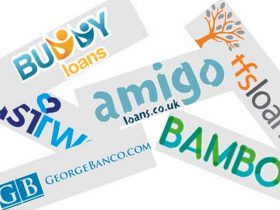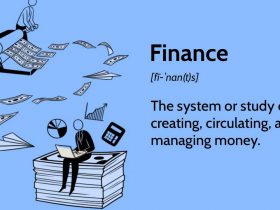In the event that they¡¯re FDIC-insured, on-line banks are as secure as conventional brick-and-mortar banks in some ways. You too can take steps as a client to make sure your account is as protected as potential when banking on-line, whether or not you financial institution with a brick-and-mortar or a web-based financial institution, additionally known as a direct or digital financial institution.
- On-line banks could provide extra enticing charge schedules and rates of interest. Providers are just like conventional banks, aside from bodily branches.?
- On-line banks take numerous precautions to maintain your cash secure, together with FDIC insurance coverage, information encryption, multi-factor authentication, and extra.
- Decide whether or not a financial institution is legit utilizing the FDIC¡¯s database.
- Test for complaints with the CFPB, studying on-line opinions, and researching the financial institution¡¯s security measures.
- Preserve your checking account secure by password-protecting your gadgets, avoiding banking on public wifi, and conserving your app and machine software program updated.
What Is an On-line Financial institution and How Does It Work?
An internet financial institution operates completely on-line. In contrast to conventional banks, on-line ones don¡¯t have bodily branches that you would be able to go to. As a substitute, you do your whole banking from an internet site or cell app. Round one-third of customers use a digital-only financial institution, in accordance with J.D. Energy, an organization analyzing client conduct.
On-line banks provide many conventional financial institution companies, together with checking accounts, financial savings accounts, and ATM entry. And due to the dearth of overhead from brick-and-mortar buildings, they’ll provide advantages akin to decrease charges and higher rates of interest. Many banks in our greatest CDs, finest high-yield financial savings accounts, and finest cash market accounts lists are on-line banks.
Alternatively, on-line banks lack some conventional banking companies that may enhance your sense of safety:
- You possibly can¡¯t go to an area department for a face-to-face dialog with a financial institution worker.?
- No entry to security deposit packing containers for file and invaluable safekeeping.?
- No companies like money deposits, cash orders, notarization, and extra.
Notice
As a result of many individuals with conventional financial institution accounts do their day-to-day banking on-line, chances are you’ll not discover a stark distinction between utilizing a web-based financial institution and a conventional financial institution.
The 6 Greatest On-line Banks of February 2024
What Measures Do On-line Banks Take to Defend Your Cash?
Like conventional banks, on-line banks take numerous safety measures to guard your cash. The steps they take to safe your account are commonplace throughout all monetary establishments that supply on-line banking.
FDIC Insurance coverage
Most banks are insured by the Federal Deposit Insurance coverage Company (FDIC). FDIC insurance coverage protects your deposits as much as $250,000 per depositor, per possession class in every financial institution. In case your financial institution fails, FDIC insurance coverage ensures your funds are protected as much as the deposit insurance coverage limits.
Knowledge Encryption
Utilizing federal steerage, on-line and conventional banks use sturdy on-line encryption, which prevents anybody moreover your financial institution from studying your information, together with your card numbers and different info.
Multi-Issue Authentication
Multi-factor or two-factor authentication requires layers of authentication earlier than permitting you to entry your account. For instance, somewhat than solely requiring that you just sort in your password, your financial institution may additionally require that you just reply a safety query or sort in a PIN that¡¯s despatched to your telephone or e-mail inbox.
Whereas many banks provide multi-factor authentication, you will have to activate it on your account. It¡¯s usually not mechanically activated.
Computerized Signal-Out
Many on-line banks use automated sign-out or time-out. In case you use your financial institution¡¯s cell app or web site and don¡¯t sign off once you¡¯re performed, you¡¯ll be mechanically logged out after a sure time passes. This prevents different individuals from opening your account in your machine with out having to log in.
Fraud Monitoring
If anybody hacks into your checking account or will get your debit or bank card info, many on-line banks have safety monitoring to catch the fraud as rapidly as potential. Your financial institution could contact you in the event that they discover uncommon exercise in your account, and also you gained¡¯t be held chargeable for any unauthorized transactions.
How one can Know If an On-line Financial institution is Reputable
It¡¯s comprehensible to be cautious of on-line banks. In any case, you may¡¯t simply go to your native department like you may a conventional financial institution or credit score union.
Take these steps to confirm a web-based financial institution¡¯s legitimacy earlier than opening an account and depositing your cash.
Affirm the Financial institution is FDIC Insured
The FDIC gives a web-based instrument that will help you confirm {that a} financial institution is legit and FDIC insured. You possibly can search by financial institution title, FDIC certification quantity, and web site. Utilizing this instrument will also be useful if you recognize a financial institution is legit and it’ll assist make sure you¡¯re on the precise URL.
Test for Buyer Complaints
The Shopper Monetary Safety Bureau (CFPB) has a searchable Shopper Grievance Database that accepts complaints about numerous monetary services. In case you¡¯re contemplating opening an account with a web-based financial institution, test the database for any complaints. Be particularly cautious if the identical grievance happens many occasions.
Notice
The CFPB database doesn¡¯t listing depository establishments with lower than $10 billion in belongings.?
Learn On-line Critiques
On-line opinions with shops such because the Higher Enterprise Bureau or on-line publishers are a superb option to find out about buyer experiences with a selected financial institution. Whereas on-line opinions aren¡¯t a assure of the kind of service you¡¯ll get, you may at the least observe whether or not they¡¯re typically constructive or destructive and whether or not there are any recurring issues.
Be taught About Financial institution Safety Measures
In case you¡¯re involved in regards to the security of your cash and your information, analysis what safety measures a web-based financial institution makes use of. Many banks share this info on their web site so potential clients can discover it.
Different Tricks to Preserve Your Cash and Knowledge Secure
Each on-line and conventional banks take steps to maintain your info secure in your checking account. There are methods you additional defend your cash and maintain your information safe:
- Password defend your gadgets: Arrange passwords on any gadgets you utilize for on-line banking, together with your smartphone, pill, or laptop.
- Arrange multi-factor authentication: Most banks provide multi-factor authentication, which requires an added step to log in somewhat than simply getting into your password.
- Use sturdy passwords and alter them usually: It¡¯s important to make use of a password that may¡¯t be hacked. Not solely do you have to use sturdy passwords that use quite a lot of characters, however it is best to replace these passwords often, akin to each three months.
- Keep away from utilizing public Wi-Fi for on-line banking: Logging into your checking account from public Wi-Fi could make your account weak and make it simpler for others to view your info.
- Use solely non-public gadgets: Keep away from logging into your checking account on a public laptop or another person¡¯s telephone. You could possibly inadvertently grant another person entry to your account.
- Be cautious of the way you share checking account info: Keep away from sending your checking account quantity or different non-public info, akin to your Social Safety quantity, by way of e-mail. Your financial institution won’t ever ask for this info by e-mail or textual content.
- Test your account for fraudulent exercise: You possibly can take numerous steps to observe for unauthorized exercise in your accounts. Take into account organising textual content alerts for purchases or checking your account usually.
- Preserve your software program updated: When an replace is on the market on your telephone or banking app, ensure that to obtain it. Maintaining-to-date with updates ensures every little thing is working in peak situation and with the most recent security measures.
What Are the Dangers of On-line Banking?
The largest threat of on-line banking is that somebody may entry your account by getting their palms in your username and password, hacking your account, exposing you to a virus, or utilizing your debit or bank card to make a purchase order. These dangers exist for on-line and conventional banks providing on-line banking companies.
How Secure is On-line Banking on a Cellular Telephone?
On-line banking on a cell phone may be secure, but it surely¡¯s vital to take security precautions. Earlier than organising cell app banking, password defend your machine, arrange multi-factor authentication in your account, and keep away from logging into your checking account app on public Wi-Fi.
How Secure is On-line Banking After I Journey Overseas?
On-line banking whereas touring internationally provides some extra security challenges. Use your mobile supplier¡¯s information plan, use your country-specific chargers and adapters, and attempt to use a VPN for delicate info. It¡¯s additionally vital to inform your financial institution of your upcoming journey. Many financial institution¡¯s fraud monitoring techniques set off in the event you use your card in a foreign country.
Are All On-line Banks FDIC Insured?
Most on-line banks are FDIC-insured, simply as most conventional banks are. You possibly can at all times confirm whether or not a financial institution is FDIC-insured by utilizing the FDIC¡¯s BankFind database of insured banks.
The Backside Line
On-line banking opens us as much as totally different vulnerabilities than we could be uncovered to with conventional in-person banking. Moreover, online-only banks deliver new options to the trade that may result in client distrust.
Nevertheless, on-line banks may be simply as secure as conventional ones. Earlier than opening an account with any financial institution, make sure the financial institution is FDIC insured, test what safety measures they use, and enact safety measures to maintain your info secure.













Leave a Reply